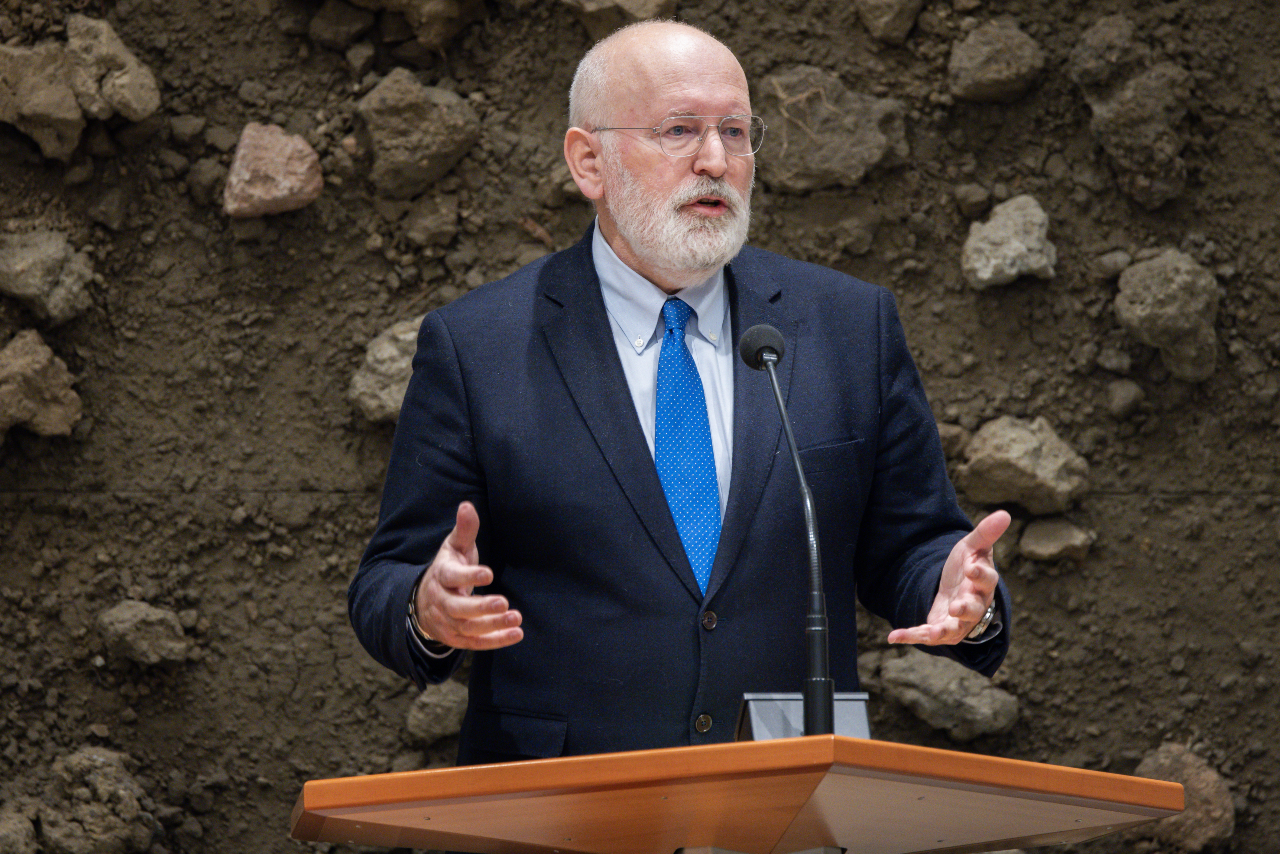Timmermans: cut labour migration to keep population growth down

GroenLinks-PvdA leader Frans Timmermans has said the Netherlands needs to take steps to limit population growth in the long term by admitting fewer labour migrants.
Timmermans’ comments were seen as a sea change in his party’s stance on migration, although the left-wing alliance said in its last election manifesto that restricting economic migration was part of a “realistic and humane migration policy”.
A recent report by the government’s demographic development commission said the country should aim for “moderate growth” to reach a population of 19 to 20 million people by 2050.
Timmermans said he supported that conclusion, which showed “you can be guided by how many people you want to admit to the Netherlands in the long term.”
He said the change of policy had followed a long discussion in his party. “I don’t think that a year ago you would have heard us take a line where we accept that we need to work within a certain bandwidth,” Timmermans told the Telegraaf.
In contrast to the right-wing coalition, which aims to cut migration by driving down the number of asylum seekers arriving in the country, Timmermans focused on labour migration and the exploitation of migrants.
Recruitment agencies
He called on the cabinet to clamp down on recruitment agencies that hired workers from other European countries to cut wages while failing to protect their rights and housing them in substandard conditions.
Timmermans said the government should make “choices in the economy” and consider imposing restrictions such as banning employment agencies in some sectors. “We don’t need so many slaughterhouses in the Netherlands,” he said.
“If you talk to people in Transvaal [in The Hague] and ask what happens when a bus arrives from Bulgaria, there are people standing there with forms that they make the Bulgarians sign saying they are self-employed from day 1,” Timmermans told a debate in parliament.
“That’s attractive for them because they earn €15 an hour when in Bulgaria they might only earn €3 an hour. So they’re not able to assess how few rights they have when they sign that document.”
The use of foreign workers was also contributing to population decline and creating a “waterbed effect” of labour shortages in countries that recently joined the European Union, such as Bulgaria and Romania, Timmermans pointed out.
“We need to ensure that countries that are able to join the EU in the future can catch up faster in their economic development so that you don’t cause this migration flow,” he said.
Omtzigt: fewer students
Pieter Omtzigt, leader of the centre-right coalition party NSC, said he wanted to tackle labour migration as part of a total package to reduce net migration to 50,000 a year.
“We have talked about asylum migration a lot, and rightly so,” he said. “But setting guidelines for student migration is easier, there are plenty of ways to make policy there.”
Social affairs minister Eddy van Hijum said the government had not set numerical targets because they were not possible to achieve in practice. “We don’t have the tools to say: this is the number and beyond that there’s nothing we can do.”
Thank you for donating to DutchNews.nl.
We could not provide the Dutch News service, and keep it free of charge, without the generous support of our readers. Your donations allow us to report on issues you tell us matter, and provide you with a summary of the most important Dutch news each day.
Make a donation